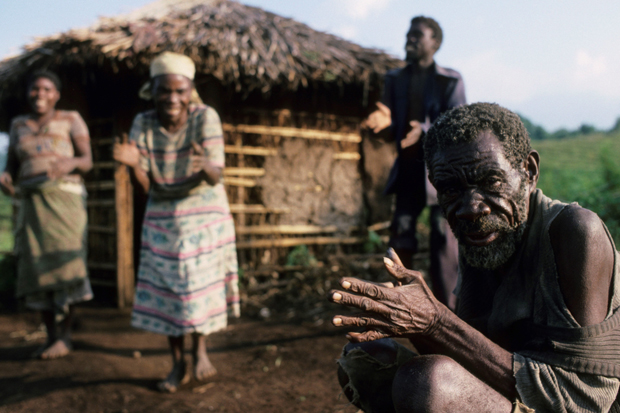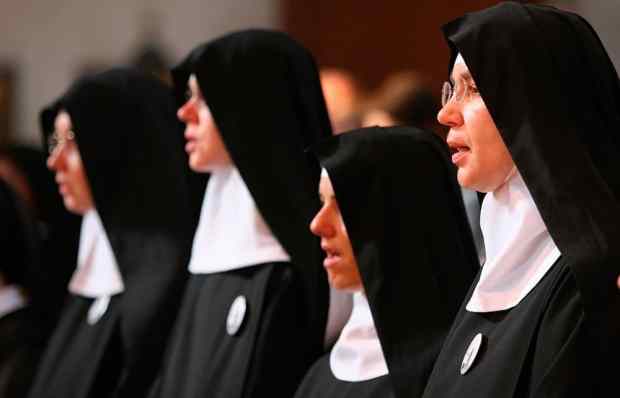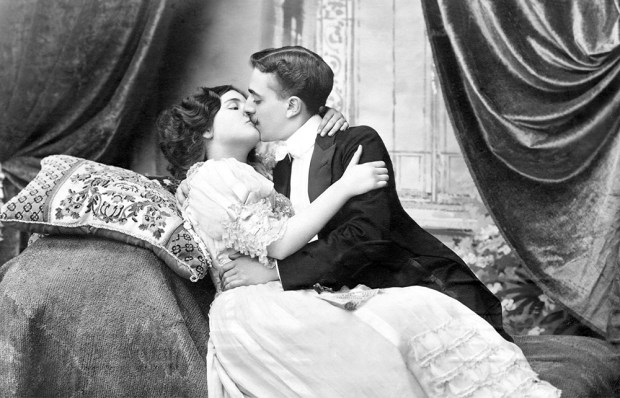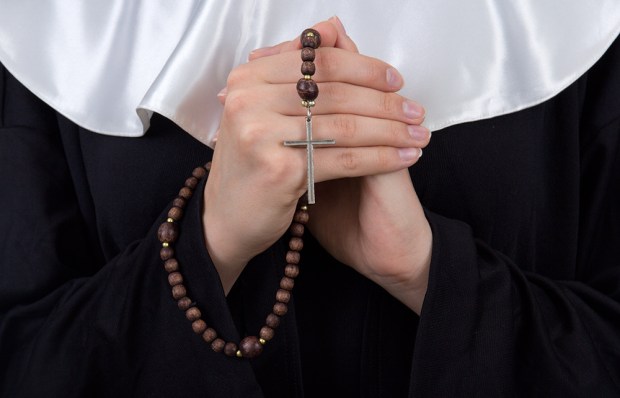Music of the Forest on Radio 4 last week was a profile of the anthropologist Colin Turnbull, 1924–1994, who achieved celebrity with his book The Forest People: A Study of the Pygmies of the Congo (1961), which presented such an inspiring vision of a prelapsarian, non-violent, egalitarian society that it became a cult classic of the counterculture. Turnbull appeared to have stumbled on an ideal and idyllic society, proving Hobbes wrong. The life of a pygmy, by this account, was very far from being ‘nasty, brutish and short’. (Or ‘nasty, British and short’ as academics are fond of saying.) What gave his pygmies the advantage over other primitive peoples, said Turnbull, is that they weren’t in thrall to the spirit world. They fear no evil. ‘For them it is a good world,’ he says.
I listened closely to the programme because I had recently read and enjoyed this book without knowing anything about the author. I had assumed Turnbull was simply a disinterested anthropologist. So I was fascinated to learn, for example, that he so despised the English upper-middle class values to which he was raised (he was educated at Westminster and Magdalen College, Oxford) that he lived the rest of his life in bitter opposition to them, and died a Buddhist monk, from Aids, aged 70. But even without knowing anything about this bee in Dr Turnbull’s bonnet, his book interested me for the simple reason that his beloved pygmies were located in the same region of the Ituri forest, close to the Epulu river, in Congo, that I had once visited while on an overland expedition across Africa.
There were 20 of us — Aussies, Kiwis and Brits — living out of a Bedford truck. Our night in a pygmy village was a ‘side trip’. We’d camped beside the Epulu river and in the morning a pygmy man came to lead us to his village several miles into the rainforest. I had been ill with one thing and another, and couldn’t be bothered to go. But Kara from Sydney urged me not to be such a Pommie fairy, and I changed my mind.
We were a pretty insensitive shower, and the dignified little man’s appearance was greeted with behind-the-hand sniggering. We followed him in single file on a winding path for several hours. Kara wore just a bikini and flip-flops. I wore my Union Jack shorts. The pygmy had a half-pint bottle of lager balanced on top of his head all the way. He was very nimble of foot and agile of body and made us look like a herd of elephants stumbling after him.
On the outskirts of the village we were greeted by village children twittering in a tree like a flock of sparrows. The pygmy adults then appeared on either side of the path. Now it was their turn to scrutinise and deride us. I had the impression that their principle interest was in how masculine we males were, and how feminine the females. I also had the impression that they found both sexes risibly wanting. Except our driver, perhaps, a Perth surfie and ‘garbo’, who was hyper-masculine and ripped, and did gunshot-loud burps unexpectedly, and was a credit to us all.
The sexes were immediately divided. We chaps joined a hunting party about to head off, and our ladies joined their ladies for hair-braiding. We were gone for about three hours. On our return (triumphant with a monkey shot out of a tree with bow and arrow, and a tiny antelope driven into a long net), our ladies were semi-bald, stoned out of their minds, and getting on with their ladies like a house on fire. And in the evening, united by the light of a campfire, stomachs full of antelope and monkey meat, the chief stuffing his yard-long pipe with marijuana yet again, it really did strike us all that these people were somehow more human than we were; more honest, fitter, saner, happier and considerably more intelligent. But I don’t think we were too surprised by that.
During the night, however, there was a terrific thunderstorm. A bolt of lightening struck the tree canopy above our heads and a branch came down, hitting a village bender and injuring a child. Well, what a difference! The entire village, convinced that they were being punished by evil spirits, ran around screaming with terror. To propitiate the spirit that had caused the lightening bolt, they opened a vein in the injured child’s leg and bled her. The illusion was shattered. ‘Pricks,’ spat Kara. So either the pygmies had kept their belief in witchcraft well hidden from Dr Turnbull, or his idealism had rendered him blind, or it was a belief they had picked up since 1947, when he was living among them. After hearing Radio 4’s excellent documentary, I think possibly either of the first two.
Got something to add? Join the discussion and comment below.
Get 10 issues for just $10
Subscribe to The Spectator Australia today for the next 10 magazine issues, plus full online access, for just $10.
You might disagree with half of it, but you’ll enjoy reading all of it. Try your first month for free, then just $2 a week for the remainder of your first year.















Comments
Don't miss out
Join the conversation with other Spectator Australia readers. Subscribe to leave a comment.
SUBSCRIBEAlready a subscriber? Log in